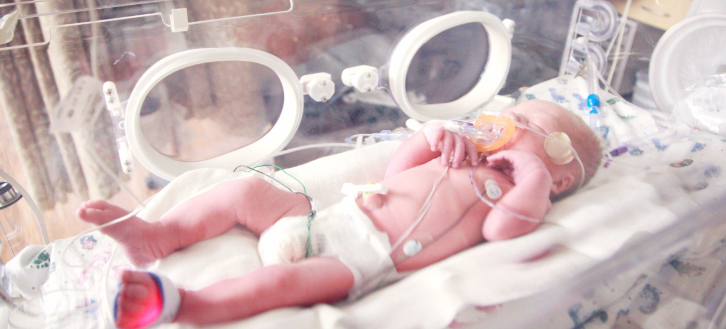The following is a summary of “Hyponatremia as a Marker for Predicting Surgical Intervention in Necrotizing Enterocolitis: A Retrospective Cohort Study,” published in the December 2023 issue of Surgery by Zhang et al.
In this retrospective cohort study, researchers aimed to assess the predictive value of plasma sodium levels at the onset of necrotizing enterocolitis (NEC) diagnosis in differentiating between surgical and medical NEC cases. The investigation spanned from 2008 to 2022, analyzing neonates diagnosed with NEC and stratifying them based on their treatment, surgical intervention, or medical management. Demographic data, laboratory parameters, and outcomes were evaluated, with a focus on values obtained at NEC onset and post-treatment. Multivariate logistic regression analyses were employed to identify potential predictors of surgical NEC, while receiver operating characteristic (ROC) curve analysis was used to determine predictive factors.
Out of the 249 infants with NEC, 111 (44.6%) underwent surgical intervention, whereas 138 (55.4%) were treated medically. The severity of NEC was classified with 22 cases as Bell Stage I, 91 as Bell Stage II, and 136 as Bell Stage III. As revealed by multivariate logistic regression, white blood cell count (WBC), C-reactive protein (CRP), fibrinogen, and sodium emerged as independent predictors of NEC requiring surgery. Hyponatremia was observed in 122 patients (49%) diagnosed with NEC, with 83.8% of the surgical intervention group displaying hyponatremia compared to 21.0% in the medical treatment group at NEC onset (P < 0.001). The diagnostic performance of WBC, CRP, fibrinogen, and sodium was assessed, with hyponatremia exhibiting an area under the curve of 0.875 for predicting surgical intervention, along with 84% sensitivity, 80% specificity, 77% positive predictive value, and 86% negative predictive value. Notably, hyponatremia demonstrated higher specificity (0.80) compared to WBC (0.67), CRP (0.50), and fibrinogen (0.70) in predicting the need for surgical intervention.
Their findings indicate that hyponatremia at NEC onset is a potential indicator to distinguish between surgical and medical NEC cases. Its predictive value could aid in counseling parents about the likelihood of surgical intervention and prompt the swift transfer of patients to specialized centers when surgical intervention is warranted.
Source: sciencedirect.com/science/article/abs/pii/S0022480423006108














Create Post
Twitter/X Preview
Logout